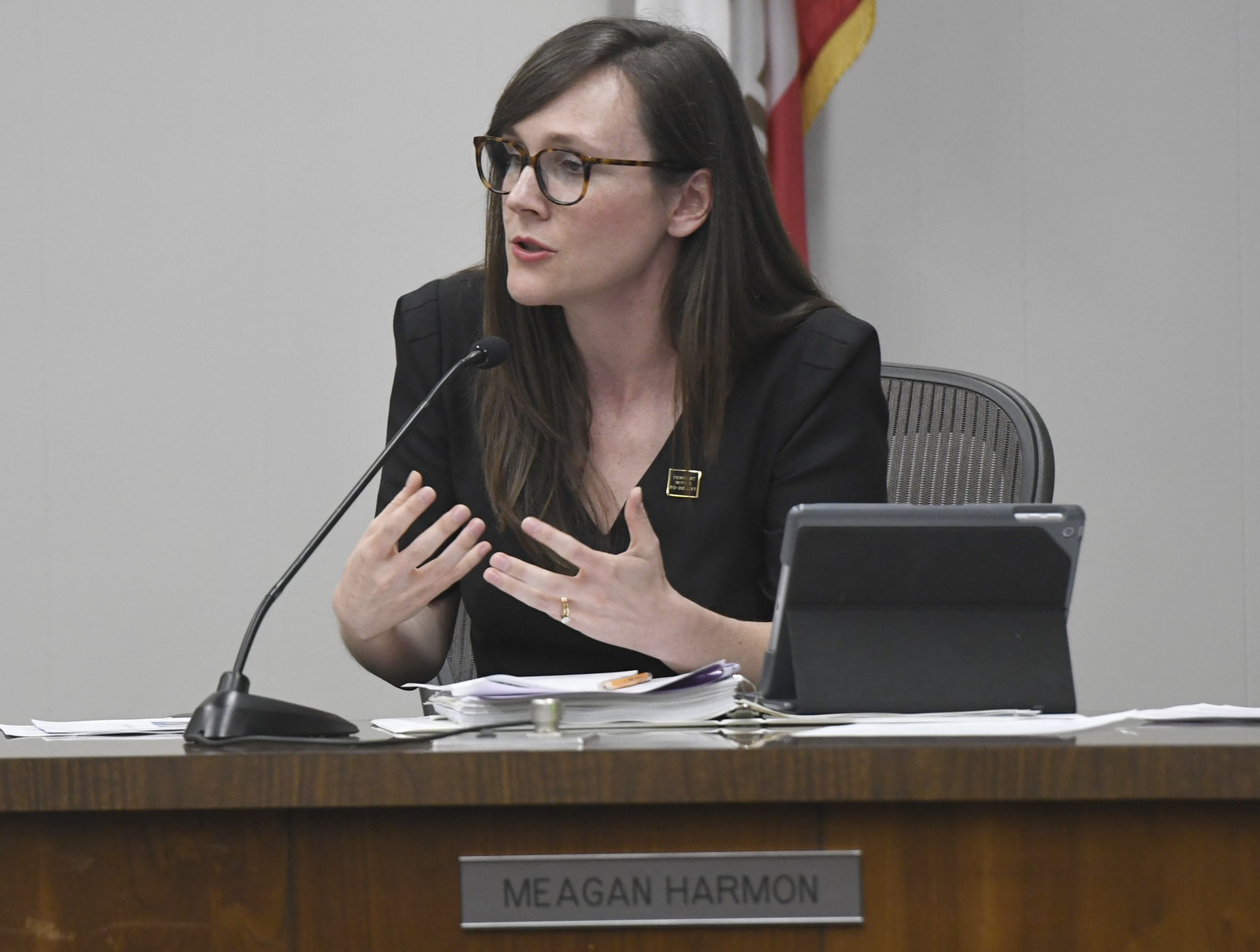Doling out $10.9 million in a rapid-fire session right before the City Council’s Tuesday afternoon meeting, Santa Barbara’s Finance Committee took a first look at a garage for the Eastside Library and boosting city worker morale with a bonus from the American Rescue Plan Act (ARPA), sent by the federal government for COVID relief.
Zac Smith, the general chapter chair for SEIU 620 at the city, took from his vacation time to inform the committee — consisting of councilmembers Eric Friedman, Alejandra Gutierrez, and Meagan Harmon — that morale was low among city workers and contrasted the suggested “hero pay” of $1,000 to Santa Maria’s bonuses that were 10 times more. (Santa Maria, which will receive $18 million in the current round of ARPA funding and has about 648 employees compared to Santa Barbara’s 936, will give employees up to $15,000 through 2023, said city spokesperson Mark van de Kamp, with amounts varying for public safety and other employees, and hours since March 2020.)
“Without us, plans are delayed, trash piles up, and there is no one to call when a sewer line breaks,” Smith told the Finance Committee. More was expected of city staff during the pandemic, he recounted, some of whom were juggling the jobs of people who’d left decades ago and never been replaced. Wages had not kept up, causing employees to struggle on meager pay that did not match the cost of living in Santa Barbara. While hero pay was a wise investment, Smith said, it was “a Band-Aid on an open wound. The only true way to adequately compensate employees, avoid pay cuts, and increase equity is through a meaningful and fair contract.”
Sign up for Indy Today to receive fresh news from Independent.com, in your inbox, every morning.
Councilmember Harmon responded with alacrity, reviewing the numbers as she simultaneously nursed her baby. With input from Chair Eric Friedman, Harmon found ways to increase the bonus pot for city workers from $1.5 million to $2.25 million. That would increase the bonus amount from up to $1,000 to $2,400, but all figures depend on the City Council approving the sums at next Tuesday’s meeting.
Finance Director Keith DeMartini had hoped to restock the city’s depleted general fund with $3.4 million from the ARPA money, but the Finance Committee only agreed to provide what was left after their review. First up was $1.18 million to replace parking fees lost to the pandemic, and State Street got $1.25 million for three years of deep cleaning. The much-used city parks got $1.275 million for turf and irrigation, the Pershing Park bandshell, and the Oak Park dancefloor. Homeless health and housing got $1.2 million, and the rent control assistance program $200,000.
The public library asked for $1 million for a garage to house its new Library on the Go vans as part of the master plan for the Eastside Library, explained Jessica Cadiente, who heads the library system. They hadn’t actually done any work on the plan, City Manager Rebecca Bjork said; $250,000 was enough to get the design rolling, to which the committee agreed. All three members also agreed emphatically to Friedman’s proposal to use $650,000 to bring the libraries back to seven-day-a-week service, especially at the Eastside, which serves as Adelante school’s library. The system also received $500,000 for digital materials.
All the back-and-forth on these and other sums — like $250,000 to bring the planning department’s software up to date and $450,000 for a compensation study that was two decades overdue — left about $900,000 for the general fund. The City Council will meet March 8 to vote on the final distribution of the ARPA funds.
Correction: Zac Smith’s statement was corrected in this version.
Support the Santa Barbara Independent through a long-term or a single contribution.




